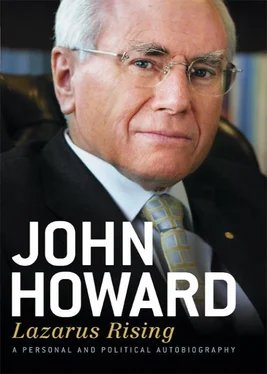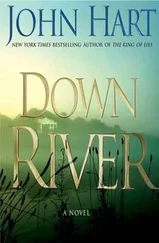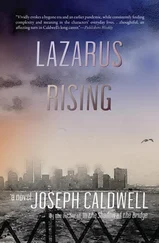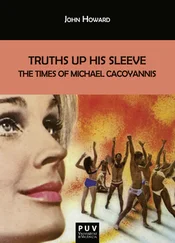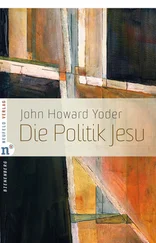Perhaps my love of debating, or the chronological memory gifted to me by my mother, or both of them, meant that I never felt comfortable reading a prepared speech. In senior office, it was essential, on certain occasions, to do so. Nonetheless, less than 10 per cent of the speeches I gave as Prime Minister were read from a prepared text. I feel that I always give my best speeches when, having thought about what I will say, I then eyeball the audience, and speak directly to the people in it. Never in my life have I used an autocue or teleprompter. I hold them in contempt as rhetorical crutches.
Canterbury High wasn’t all debating though. I played both cricket and rugby in the school’s second XI and second XV respectively, in the CHS competition. History and English were far and away the subjects I enjoyed and excelled in most. History fascinated me. One of my real educational regrets was that I never did an arts or economics degree as a precursor to law. Amongst other benefits, it would have allowed me to further indulge my passion for history.
My Leaving Certificate exams, in 1956, were sat against the backdrop of the brutal Soviet invasion of Hungary and the controversial Anglo-French Suez operation. On the happier side there was the great excitement of the Olympic Games coming to Melbourne. It was also a time when Robert Menzies appeared to have established a stranglehold on Australian politics, courtesy of the bitter Labor split of 1955 and the ultimate emergence of the Democratic Labor Party (DLP), initially called the Labor Party (Anti-Communist), which in 1961 would save Menzies from otherwise certain defeat.
Both of my parents were fierce believers in private enterprise. This was barely surprising, given that my father had worked incredibly long hours for more than 20 years in building up his garage business in Dulwich Hill, an inner suburb of Sydney. He was a qualified motor mechanic, and the garage he ran provided the full range: not only did he serve petrol, but he also serviced and repaired cars. In my lifetime, Dad always opened the garage on Saturday and Sunday mornings. Only on Christmas Day, Good Friday and Anzac Day was the garage closed all day. Years earlier it had been even tougher, with Dad not getting home until about 10 o’clock at night, after he had closed.
If you ran a small business, there was nothing particularly strange about this. Both then and now, running a small business of the sole trader or sole owner type entails a total commitment of time and energy. There are no guaranteed market shares, and no penalty rates or overtime for effort beyond normal working hours. The qualitative difference between owning and operating a genuinely small business and working, even at a senior executive level, in a large corporation is immense and rarely understood by those not involved in it.
My father was always very tired when he came home from the garage, particularly on Saturdays, when he would often spend most of the afternoon resting. The business was discussed over the dinner table. My brothers had helped out, serving petrol and doing other tasks at the garage. I couldn’t wait until I was old enough so I could have a go as well. I started when I was about 14. I loved it. It was a real buzz serving petrol, checking oil levels, pumping up tyres and trying to sell a few ‘sundries', such as new spark plugs. Years later Paul Keating would sneeringly refer to the ‘bowser boy from Canterbury’ (sic). To me it was a badge of honour.
I enjoyed meeting the customers, who, my father reminded me, were always right. I had quite an argument with one customer, who insisted on smoking a cigarette as he stood beside me while I pumped petrol into the tank of his car. In the end I pulled the nozzle of the pump out of the tank. Then he put out his cigarette. I hope he stayed as a customer.
Like all service stations of that time, my father’s sold all different brands of petrol. Unlike many others, though, Dad owned the freehold of his garage. From the early 1950s onwards, the major oil companies began an aggressive ‘one brand’ service station expansion policy of either building new service stations or doing deals, of various kinds, with existing operators, so that only one brand of fuel was sold at a site. This intensified competition as the number of sites expanded rapidly, with new operators often being obliged to open for longer hours. It was hard for someone in my father’s position to match this. The inevitable business pressure affected Dad’s health. Although he didn’t want to go one-brand, it became a commercial necessity as there was a small rebate per gallon paid to owners who sold only one brand. He signed up with Mobilgas in 1954.
The one-brand switch badly affected Dad’s business, but it had to be accepted as a tough but unavoidable competitive development which could occur in any market. What could not, however, be viewed in the same light was an arbitrary edict delivered by the local Marrickville Council later in the year.
The council told him to remove his petrol bowsers from the kerbside in front of his service station, as it wanted traffic lights installed on the street corner where the garage stood. This was tantamount to telling Dad to close down his business. Neither the council nor the NSW Government authority, at whose instigation the council would have acted, offered any compensation for the potential destruction of my father’s business. It dealt a real body blow to my father and, coming on top of the market-related setbacks he had suffered, left Dad deeply dispirited and worsened his health.
As a 15-year-old boy, I thought that my father had been treated outrageously by an insensitive, high-handed council, against which he had no redress. This edict hung over my father and was still there when he died at the end of 1955. Exchanges went on for some time after that, and it was not until the early ‘60s that traffic lights were finally installed on the corner.
This incident reinforced the feeling in my family that governments, generally speaking, weren’t all that sympathetic to small business; that if you had one, you were very much on your own. Big companies could look after themselves and unions were strong, but the little bloke got squeezed. Such attitudes weren’t entirely logical, and in government I always emphasised the common interests of businesses, large and small. Yet, when on-balance judgements were called for, I confess to usually siding with the small operator, even if some violation of free-market principles might be involved; my support for newsagents and pharmacies come readily to mind.
* * *
As I’ve said, politics and current affairs were frequently discussed, not only around the dinner table, but also in direct conversation between my mother and father. There was no particular starting point for the discussion of politics at home. I can remember it always being there. My eldest brothers usually joined the discussions quite freely.
Occasionally, my father would listen to important parliamentary broadcasts on the ABC. We all followed the events leading up to the double dissolution of federal parliament obtained by Bob Menzies in 1951. It was the first time that a double dissolution had been sought since World War I, and — particularly given the political antecedents of the Governor-General, Sir William McKell, who had been the Labor Premier of New South Wales — there was much conjecture as to whether he would agree with the advice offered by Menzies supporting the request for a double dissolution.
In the end, McKell did the right thing and granted the dissolution. For doing his sworn duty he incurred the lifelong hostility of some Labor people, who simply believed that he should have done the bidding of his old political party rather than discharge his constitutional responsibility. This was a precursor to a much more savage application of the Labor belief that the party always owned the man, irrespective of the circumstances, some 25 years later.
Читать дальше
